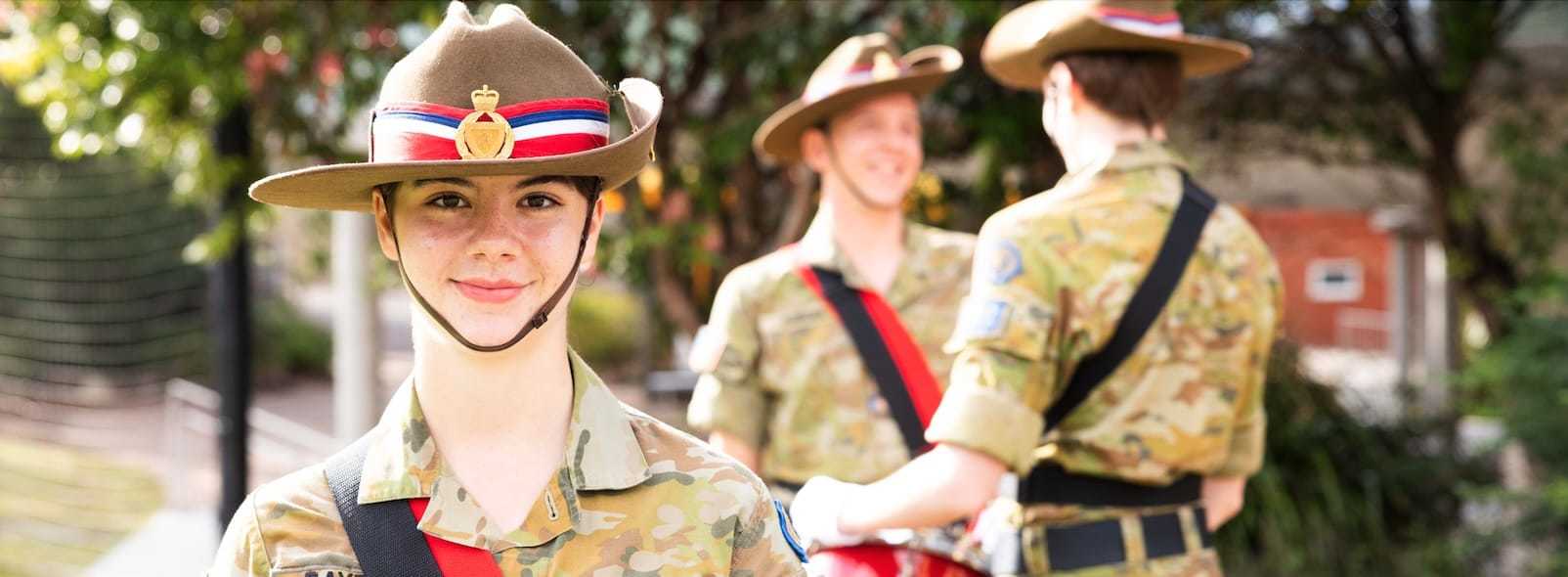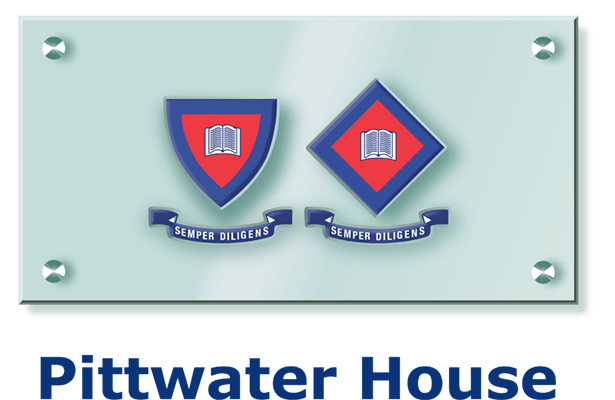Pittwater House Army Cadet Unit (PHSACU)
PHSACU embodies a tradition of service, to the community and to our School.
Being a Cadet is a voluntary option that teaches skills such as navigation, field craft, radio telecommunications and drill. The highlights of the Cadet calendar are the bi-annual overnight camps, organised activities, and ceremonial parade.
Senior students run the day-to-day operations of the Unit and mentor the younger students. The Cadet Unit represents the continual flow of knowledge and leadership: the leaders of the Cadet Unit have been inspired and guided by their previous officers and, in turn, pass on this same inspiration and advice to the new members of the Unit so that they too can develop the values of courage, teamwork, initiative and respect.
It is this communication flow that allows for an endless supply of specialists, leaders and thinkers, fit for tackling society’s many challenges.
Our Army Cadet Unit forms part of the NSW Australian Army Cadets 2nd Brigade, which is in turn part of the Commonwealth Government’s Australian Defence Force Cadets Scheme.
As members of the Australian Army Cadets, students will have the opportunity to explore their full potential, develop confidence, learn a range of new skills, develop their sense of adventure and leadership, team building, make friends, and have a lot of serious fun along the way.
To join Cadets at Pittwater House, students will need to become members of Australian Army Cadets and participate in set activities and experiences. As well as being part of the national youth development program, our Cadets will adopt its values of courage, initiative, respect, and teamwork.
We remind students that they will need to maintain a sensible balance between all co-curricular activities.
Monday training and parades
Training includes a comprehensive program whereby Cadets will be introduced to teamwork, radio communications, navigation, first aid, drill, fieldcraft and adventurous activities.
An example training and parade afternoon would look similar to the following:
Cadets will form up on the school oval for the opening parade and a dress inspection. Once this is completed, they will be dismissed from the oval and participate in two lessons that are 35 min each.
These 35 min lessons would cover items that are key to Cadet learning. Examples of this are, first aid in the field, Ratel and communications, navigation and map reading skills, drill etc.
At the conclusion of these lessons, they form up on the oval for a dismissal parade.
Unless prior notification is given, training concludes at 5:00pm and students can be collected from Pittwater House or make their own arrangements to travel home.
Leadership
PHSACU students are encouraged to become resilient, courageous, engaged and filled with a sense of humour and capacity for adventure. This cultivates emotional intelligence, explores a deeper understanding of their identity, finds purpose and gains confidence in exercising leadership.
Acquiring leadership skills and managing teams are core skills developed within Australian Army Cadets. Promotion courses will be held each year, for Years 9 and 10.
Cadets will work together on leadership and management of teams; the planning, implementation, and evaluation of training programs; risk analysis and modification; developing an understanding of change processes within an organisation and the application of resources to specific tasks.
“Cadets has offered me experiences outside my comfort zone, leading to discipline, maturity and a strong sense of camaraderie amongst my peers. All the while with a dash of fun!”
FAQ's

Purpose
The Australian Army Cadets (AAC) are a personal development program for young people, conducted by the Australian Defence Force in cooperation with the community, which benefits the Nation by developing an individual’s capacity to contribute to society, fostering an interest in Defence Force careers, and developing ongoing support for Defence.
Goals
Conduct a creative personal development program in a military environment that:
- Extends individuals beyond their self-imposed limits,
- Develops an understanding of the balance between personal freedoms and choice and the responsibilities that they bring,
- Promotes self-reliance, self-esteem and self-discipline, and
- Develops and recognises a broad range of skills including leadership and teamwork.
Contribute to social development by:
- Encouraging pride in self, community and the nation,
- Equipping young people to be better citizens,
- Encouraging a volunteer ethos,
- Developing work and life skills, and
- Providing a supportive and safe environment.
Contribute to the development of the ADF through:
- Enhancing Defences reputation in the community,
- Maintaining Service customs traditions and values,
- Understanding what Defence does, and
- Demonstrating a return on the Defence Organisation’s investment by promoting career opportunities within Defence.
